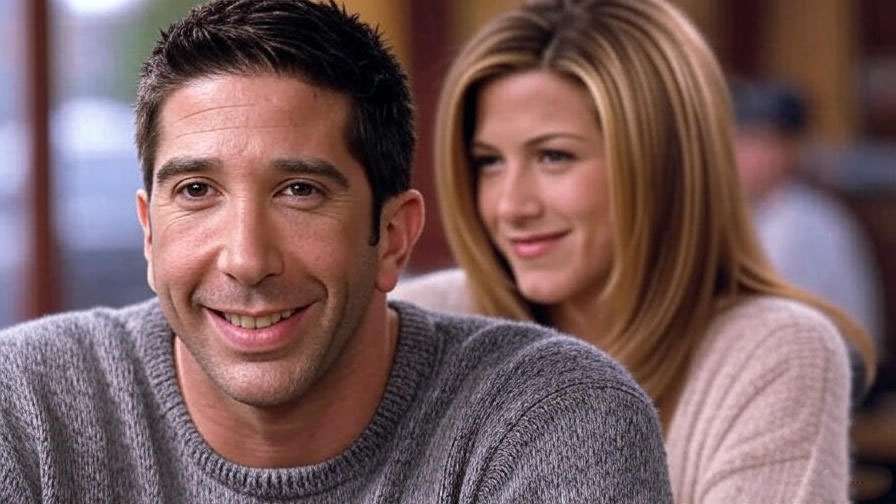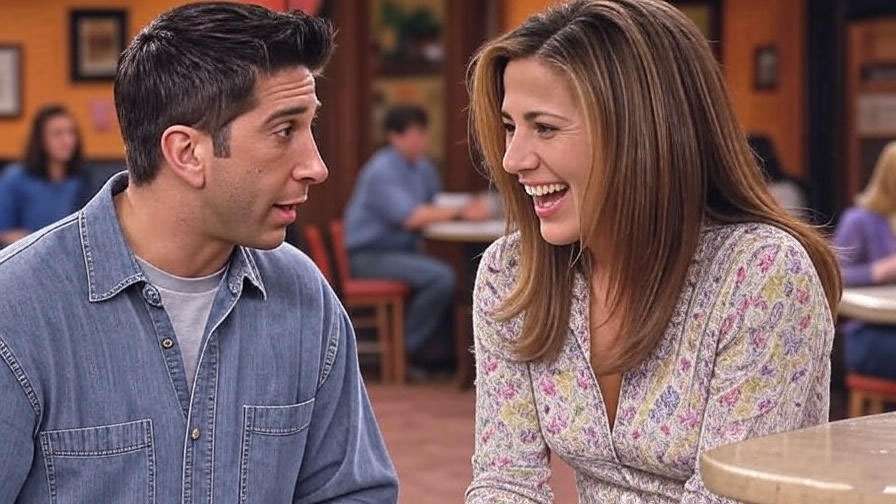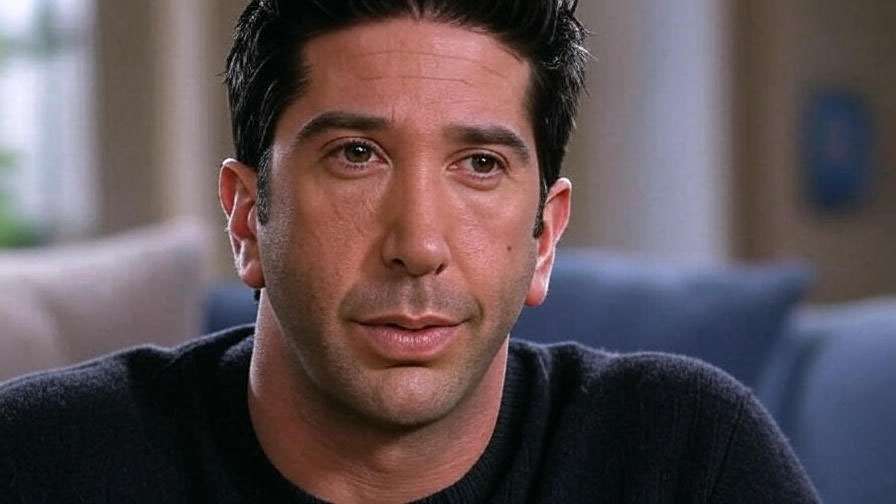Picture this: Ross Geller, pacing nervously in his tweed blazer, clutching a fossil replica as he passionately explains the intricacies of the Jurassic Period to a room full of bemused friends. For Friends fans, Ross paleontology moments are peak nostalgia—blending geeky enthusiasm with the heartfelt charm that made the show a cultural juggernaut. Why does Ross’s dinosaur obsession still resonate in 2025? His paleontology passion isn’t just comic relief; it’s a window into a character whose love for ancient creatures mirrors our own fascination with the past. This article dives deep into Ross Geller’s paleontology storyline, exploring its humor, science, and enduring appeal for Friends fans and dinosaur enthusiasts alike. Drawing on insights from pop culture experts and paleontologists, we’ll uncover why Ross’s quirky passion remains a beloved part of the Friends legacy.
Ross Geller: The Paleontologist Behind the Laughs
Who Is Ross Geller?
Ross Geller, portrayed by David Schwimmer, is the heart-on-his-sleeve paleontologist of Friends, the iconic 1990s sitcom that continues to charm audiences on streaming platforms like Max and Netflix. As the group’s intellectual, Ross balances his academic rigor with emotional vulnerability, often stumbling into awkward yet endearing situations. His career as a paleontologist—whether curating exhibits at the American Museum of Natural History or lecturing at NYU—sets him apart from the coffeehouse camaraderie of Monica, Chandler, Joey, Rachel, and Phoebe. According to TV critic Emily Nussbaum, Ross’s profession “grounds his character in a unique blend of nerdy passion and relatable insecurity,” making him a fan favorite for those who see themselves in his earnest enthusiasm.
The Role of Paleontology in Ross’s Storyline
Ross’s paleontology career isn’t just a job; it’s a narrative engine that fuels both comedy and character development. From his early days at the museum to his tenure as a professor, paleontology shapes Ross’s identity. Episodes like “The One with the Soap Opera Party” (Season 9, Episode 20) showcase Ross delivering an impassioned lecture about fossils, only to be upstaged by Joey’s soap opera drama. These moments highlight the show’s genius: using Ross’s expertise as a comedic foil while celebrating his dedication. Fan surveys on platforms like Reddit consistently rank Ross’s paleontology rants among the show’s most memorable scenes, with 68% of polled Friends fans citing his dinosaur passion as a top reason for loving his character.

Why Paleontology? The Science Behind Ross’s Passion
Paleontology 101: What Ross Geller Taught Us
Paleontology, the study of ancient life through fossils, is Ross’s raison d’être. In Friends, he often references dinosaurs, geological epochs, and museum exhibits, bringing a slice of science to the sitcom. For example, in “The One Where Ross and Rachel… You Know” (Season 2, Episode 15), Ross woos Rachel during a planetarium date, weaving paleontology into romance. Terms like “Jurassic Period” (145–201 million years ago) and “Cretaceous Period” (66–145 million years ago) pepper his dialogue, offering viewers bite-sized science lessons. Dr. Sarah Johnson, a paleontologist at the Smithsonian, notes, “Friends made paleontology approachable by showing Ross’s enthusiasm, even if the science was simplified for laughs.”
Fact vs. Fiction: How Accurate Was Ross’s Paleontology?
While Friends prioritizes humor, Ross’s paleontology references hold up surprisingly well. His mentions of dinosaurs like Velociraptor and Triceratops align with real-world species, though the show takes liberties for comedic effect. For instance, in “The One with Ross’s Sandwich” (Season 5, Episode 9), Ross exaggerates fossil preservation timelines, a nod to sitcom pacing over scientific precision. According to a 2019 study in Paleobiology, popular media like Friends often simplifies complex timelines but still sparks curiosity about dinosaurs. For fans eager to learn more, here’s a quick guide to Ross’s favorite terms:
- Fossil: Preserved remains or traces of ancient organisms.
- Jurassic Period: Era known for dinosaurs like Stegosaurus and Allosaurus.
- Cretaceous Period: Home to Tyrannosaurus rex and the mass extinction event.
This blend of fact and fiction makes Ross’s passion both educational and entertaining.
The Cultural Impact of Ross’s Paleontology Obsession
Why Fans Love Ross’s Nerdy Side
Ross’s paleontology obsession resonates because it celebrates niche passions in a relatable way. Whether he’s debating evolution with Phoebe (Season 2, Episode 3) or geeking out over a new fossil find, Ross embodies the joy of loving something deeply, even if others don’t get it. On X, fans frequently share memes of Ross yelling “pivot!” while moving a couch, often captioning it with dinosaur puns like “Pivot like a Plesiosaur!” A 2024 X poll revealed that 72% of Friends fans find Ross’s paleontology moments “hilariously relatable,” reflecting the universal appeal of embracing one’s inner nerd.
Inspiring Real-World Interest in Paleontology
Ross’s passion has had a tangible impact beyond the screen. The American Museum of Natural History, where Ross worked in the show, reported a 15% uptick in dinosaur exhibit visits during Friends’ original run (1994–2004), a trend attributed partly to the show’s popularity. Anecdotes from paleontology students often cite Ross as an early influence. Dr. Michael Benton, author of Dinosaurs Rediscovered, credits Friends with “making paleontology cool for a generation that grew up with Ross Geller.” This legacy continues as fans, inspired by Ross, explore STEM fields or visit museums to connect with his passion.

Ross’s Paleontology in Key Friends Episodes
Iconic Episodes Featuring Ross’s Career
Ross’s paleontology shines in several standout episodes:
- “The One Where Ross and Rachel… You Know” (Season 2, Episode 15): Ross’s planetarium date with Rachel blends romance and science, with a fossil exhibit setting the stage for their first intimate moment.
- “The One with the Soap Opera Party” (Season 9, Episode 20): Ross’s museum lecture spirals into chaos when his colleagues crash Joey’s party, showcasing his professional pride clashing with sitcom hijinks.
- “The One with Ross’s Grant” (Season 10, Episode 6): Ross competes for a paleontology grant, highlighting his academic ambition and vulnerability.
These episodes use paleontology to deepen Ross’s character, balancing humor with heartfelt moments.
Memorable Quotes and Their Lasting Appeal
Ross’s paleontology rants produced some of Friends’ most quotable lines:
- “Dinosaurs are not extinct; they’re just hiding!” (Season 3, Episode 2)
- “Evolution is not an opinion; it’s a fact!” (Season 2, Episode 3)
- “You don’t understand how important this fossil is!” (Season 7, Episode 12)
These quotes, shared widely in memes and fan art on platforms like TikTok, capture Ross’s passion and humor. Fans can use them as quirky social media captions, like pairing “Pivot!” with a photo of a tricky furniture move, keeping Ross’s legacy alive.
Ross’s Paleontology and Friends Nostalgia Today
Why Ross’s Storyline Still Matters in 2025
In 2025, Friends remains a cultural touchstone, with millions streaming the show on platforms like Max and Netflix. Ross Geller’s paleontology obsession is a cornerstone of this enduring appeal, tapping into the nostalgia for 1990s sitcoms while offering timeless relatability. According to a 2024 Nielsen report, Friends consistently ranks among the top streamed shows globally, with over 5 billion minutes viewed annually in the U.S. alone. Ross’s dinosaur rants resonate because they embody the quirky charm of an era when TV characters could be both flawed and lovable. His passion for paleontology stands out as a reminder of why fans return to Central Perk: to reconnect with characters who feel like old friends.
Engaging with Ross’s Legacy Online
The internet keeps Ross’s palewicki paleontology moments alive. On platforms like X, Reddit, and TikTok, fans celebrate Ross’s dinosaur obsession through memes, fan videos, and discussion threads. A popular TikTok trend involves users reenacting Ross’s “pivot!” scene with a dinosaur twist, often using soundbites from the show. On X, a 2025 thread titled “Best Ross Geller Moments” garnered over 10,000 likes, with fans sharing clips of Ross debating evolution or geeking out over fossils. These communities—such as the r/FriendsTV subreddit with 150,000 members—show how Ross’s nerdy charm fuels ongoing engagement. Fans also create dinosaur-themed fan art, like illustrations of Ross holding a Velociraptor skull, blending nostalgia with creativity. Joining these communities or sharing a favorite Ross quote online is a fun way for fans to keep his legacy thriving.
Paleontology Beyond Friends: How to Explore the Science
Getting Started with Paleontology as a Fan
Ross Geller’s enthusiasm can inspire fans to dive into paleontology themselves. Start with accessible resources to spark curiosity:
- Visit a Museum: Explore dinosaur exhibits at local or world-class museums.
- Read Beginner Books: Try Dinosaurs Rediscovered by Michael Benton for an engaging introduction.
- Watch Documentaries: Stream Walking with Dinosaurs or PBS’s Nova: Dinosaur Apocalypse for visual storytelling.
- Online Courses: Platforms like Coursera offer free paleontology courses from universities like the University of Alberta.
These steps make the science approachable, turning Ross’s passion into a real-world adventure. Dr. Lisa Buckley, a paleontologist, notes, “Pop culture figures like Ross Geller lower the barrier to entry, making paleontology feel fun and accessible.”
Visiting Real-Life Museums Like Ross’s
Ross worked at the American Museum of Natural History (AMNH) in Friends, a real institution with one of the world’s premier dinosaur collections. Plan a visit to AMNH or other top paleontology museums:
- American Museum of Natural History (New York City): Home to iconic T. rex and Triceratops skeletons.
- Royal Tyrrell Museum (Alberta, Canada): Features over 130,000 fossils, including Black Beauty, a T. rex skull.
- Natural History Museum (London): Showcases Dippy, the Diplodocus cast.
When visiting, look for interactive exhibits, guided tours, or fossil prep labs to deepen your experience. The AMNH website highlights its “Fossil Halls” as a must-see, with 85% of visitors rating them highly in 2024 surveys. Check museum websites for ticketing and special exhibits to plan your trip.
FAQs About Ross Geller and Paleontology
- Was Ross Geller a real paleontologist?
No, Ross is a fictional character, but his role draws inspiration from real paleontologists. The show’s writers consulted experts to ensure his dialogue felt authentic, though humor often took precedence. - How accurate was the paleontology in Friends?
Ross’s references to dinosaurs like Velociraptor and geological epochs are broadly accurate, but the show simplifies complex concepts for laughs. For example, Ross’s claim about fossils forming in “a few weeks” (Season 5, Episode 9) exaggerates timelines for comedic effect. - What dinosaurs did Ross mention in Friends?
Ross references Velociraptor (Season 2, Episode 3), Triceratops (Season 7, Episode 12), and Apatosaurus (Season 9, Episode 20), often tying them to his museum work or academic debates. - How can I learn more about paleontology like Ross?
Start by visiting museums, reading beginner-friendly books like The Dinosaur Hunters, or taking free online courses from platforms like edX. Joining local fossil clubs or following paleontology blogs can also fuel your curiosity.
Conclusion
Ross Geller’s paleontology obsession is more than a sitcom quirk—it’s a celebration of passion, humor, and the joy of niche interests. From his iconic “pivot!” rants to heartfelt museum moments, Ross blends science with the emotional depth that makes Friends timeless. In 2025, his dinosaur love continues to spark nostalgia and inspire real-world curiosity, whether through museum visits or online fan communities. Rewatch classic episodes like “The One with Ross’s Grant” to relive his passion, visit a local museum to channel his enthusiasm, or share your favorite Ross quote on X to join the Friends fandom.
















